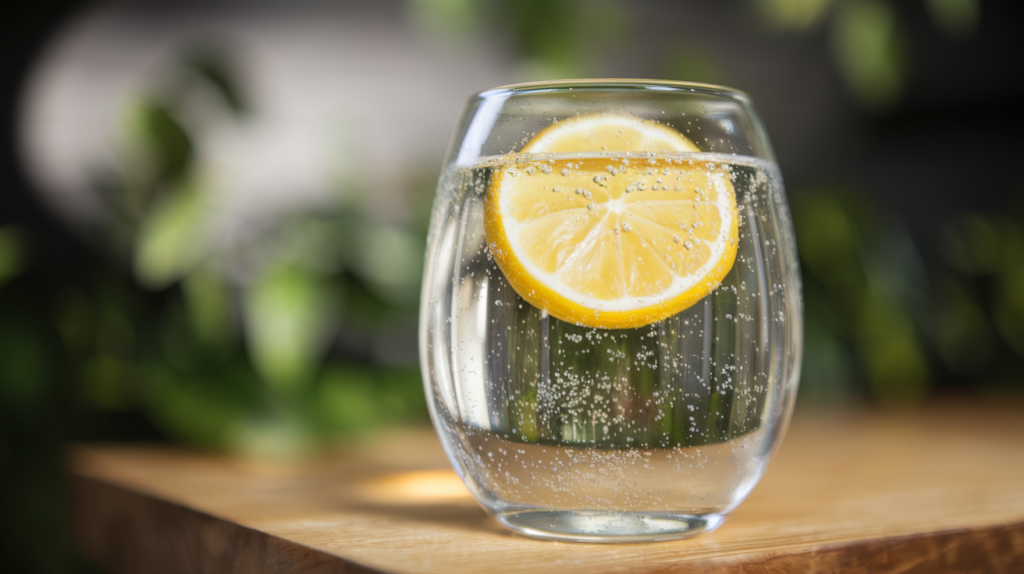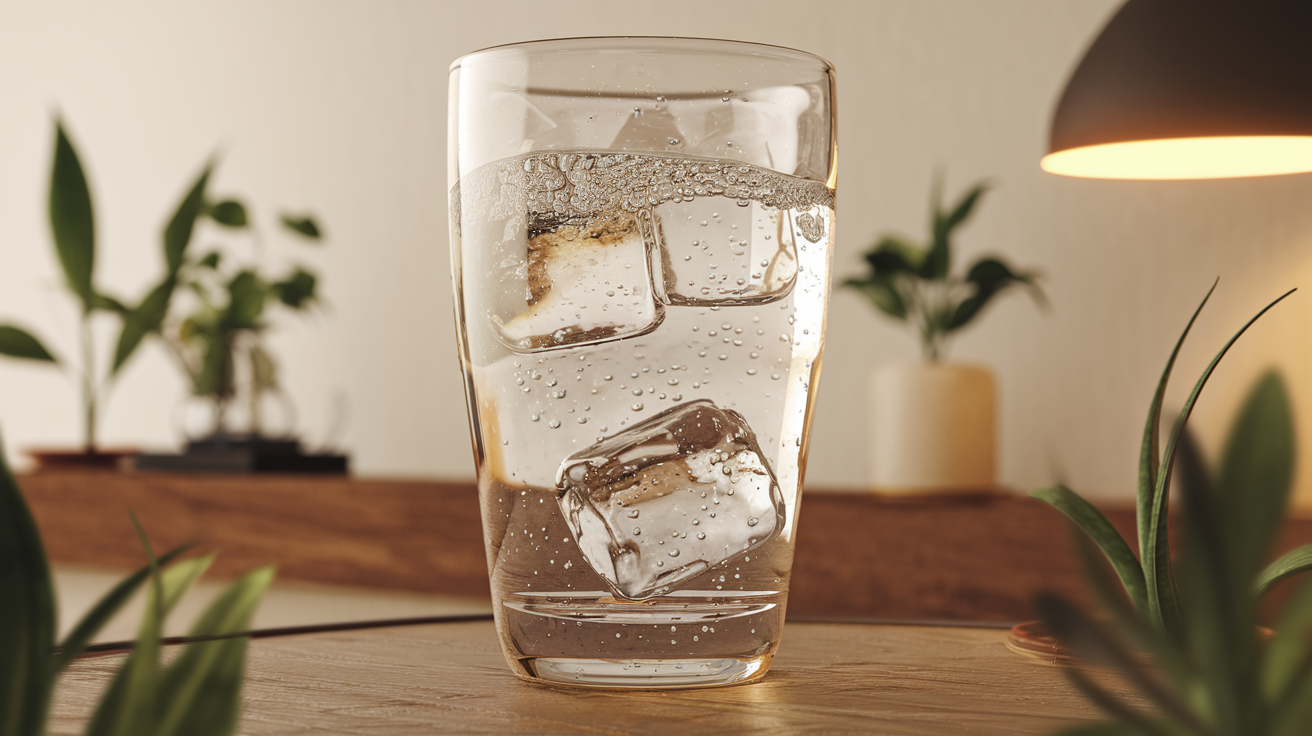Introduction:
Sparkling water is taking over as a trendy, refreshing alternative to sugary soft drinks. With its light fizz and zero calories, it’s become a go-to choice for health-conscious individuals. But what exactly is sparkling water, and how is it different from regular water? Let’s dive into the world of sparkling water, exploring its benefits, types, and how it’s made.
1. What is Sparkling Water?
Sparkling water is water infused with carbon dioxide (CO2), which creates its signature bubbles. Also known as carbonated water, soda water, or seltzer water, it’s similar to naturally occurring mineral waters found in springs.
- Sparkling water is carbonated water, often without added flavors or sugars.
- It mimics the refreshing taste of natural mineral waters found in certain springs.
- It differs from soda, which usually contains sweeteners and added flavors.
Example Detail:
Sparkling water is essentially water that has been carbonated, meaning it’s infused with CO2 gas under pressure. This process creates the fizzy bubbles that give sparkling water its unique texture and refreshing taste.
2. Different Types of Sparkling Water
Not all sparkling waters are the same. Here’s a quick breakdown of the various types available:
- Seltzer Water: Plain carbonated water with no minerals or additives.
- Club Soda: Carbonated water with added minerals like sodium bicarbonate or potassium sulfate, giving it a slightly salty taste.
- Sparkling Mineral Water: Naturally carbonated water from springs, like Perrier or San Pellegrino, containing dissolved minerals.
- Tonic Water: Carbonated water with added quinine and sweeteners, typically used in cocktails.
Example Detail:
Not all sparkling waters are the same. Seltzer is simply carbonated water, while club soda has added minerals, giving it a distinct taste. If you’re craving a slightly sweet or bitter taste, tonic water (used in drinks like gin and tonic) might be more your style.
3. How Sparkling Water is Made
The carbonation process is what gives sparkling water its effervescence:
- CO2 is added to still water under pressure to create bubbles.
- Natural mineral water is carbonated through the earth’s volcanic activity, absorbing CO2 underground.
- Artificial carbonation creates the bubbles in most commercial sparkling waters, but natural carbonation can give mineral waters a unique flavor.
- Optional flavorings such as citrus, berry, or herbs can be added for variety.
Example Detail:
Most commercial sparkling water is made by dissolving CO2 into still water under pressure. However, naturally sparkling mineral waters, like those from European springs, are carbonated by underground volcanic activity, giving them a distinct mineral profile.
4. Health Benefits of Sparkling Water
Sparkling water offers several health benefits, making it a great alternative to sugary sodas:
- Hydration: Just as hydrating as still water.
- Zero Calories: No added sugars or calories, making it perfect for weight management.
- Digestion: Can help improve digestion by relieving bloating and trapped gas.
- Mineral Content: Sparkling mineral waters may contain calcium, magnesium, and sodium, which are beneficial to your health.
Example Detail:
One of the major benefits of sparkling water is that it offers the same hydration benefits as regular water without the calories or sugars found in sodas. Plus, sparkling mineral water can be a source of essential minerals like calcium and magnesium.
5. Is Sparkling Water Safe for Your Teeth and Bones?
There are common misconceptions about sparkling water’s effects on teeth and bones:
- Bone Health: Contrary to popular belief, CO2 in sparkling water doesn’t affect bone health.
- Acidity: Sparkling water is slightly more acidic than still water, but it’s much less acidic than sodas or fruit juice.
- Teeth: To protect your enamel, it’s best to avoid sipping sparkling water throughout the day and drink it with meals.
Example Detail:
While sparkling water is slightly more acidic than regular water, it’s far less acidic than sugary sodas or fruit juices. Drinking it with meals can help minimize any impact on your tooth enamel, making it a safe choice for most people.

6. Sparkling Water vs. Soda – Which is Healthier?
When comparing sparkling water to soda, sparkling water comes out ahead in terms of health benefits:
- No Sugar or Sweeteners: Sparkling water contains none of the sugar or artificial sweeteners found in sodas.
- Zero Calories: Plain sparkling water has no calories, making it a guilt-free beverage.
- No Caffeine or Phosphoric Acid: Sodas often contain additives like caffeine and phosphoric acid, which can be harmful in large quantities.
- Flavored Sparkling Water: Provides a healthy alternative for those who enjoy the taste of soda but want to cut back on sugar.
Example Detail:
When compared to soda, sparkling water is the clear winner in terms of health benefits. It offers the same fizzy satisfaction without the high sugar content, artificial sweeteners, or calories. For those looking to kick a soda habit, flavored sparkling waters provide a delicious, guilt-free alternative.
7. Fun Ways to Enjoy Sparkling Water
Sparkling water can be a versatile and enjoyable beverage when you get creative:
- Add a splash of fruit juice like lemon, lime, or orange for a hint of natural sweetness.
- Create your own infused water with slices of cucumber, mint, or berries.
- Use sparkling water as a base for mocktails or light cocktails.
- Pair it with meals as a refreshing, palate-cleansing drink.
Example Detail:
Sparkling water doesn’t have to be plain—try adding a splash of fruit juice or fresh herbs like mint or basil for an extra burst of flavor. You can even use it as a base for fun, healthy mocktails or cocktails with minimal calories.
FAQs
1. Can sparkling water hydrate you as well as regular water?
Yes, sparkling water is just as hydrating as still water. It can be a great way to stay hydrated if you prefer fizzy drinks over plain water.
2. Is sparkling water bad for your teeth?
While sparkling water is slightly more acidic than still water, it’s much safer for your teeth than sugary sodas. Drinking it with meals can help reduce the risk of any enamel damage.
3. Can I drink sparkling water every day?
Absolutely! Sparkling water is a great, calorie-free alternative to soda and other sugary beverages. Just make sure you’re choosing options without added sweeteners or flavors.
4. What’s the difference between sparkling water and club soda?
Club soda is carbonated water that has added minerals like sodium bicarbonate, which gives it a slightly salty taste. Sparkling water, on the other hand, is typically just plain carbonated water with no added ingredients.
Wrapping Up: Sparkling Water – A Refreshing, Healthy Choice
Sparkling water is not only refreshing but also a much healthier alternative to sugary drinks like soda. With no calories, no sugar, and a variety of types and flavors to choose from, it’s an excellent option for staying hydrated and satisfying your craving for bubbles. Whether you prefer it plain, naturally flavored, or mixed into a mocktail, sparkling water can easily become a staple in your daily routine.
Next time you’re looking for a fizzy drink, reach for a bottle of sparkling water and enjoy all the benefits it has to offer!

